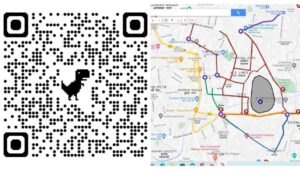‘Work From Home’ has changed our approach towards work

Work from home flexibility in India was considered to be icing on the cake prior to Covid-19 even in the computer-based work arena. It used to be a wow-factor!
It saved commuting time and provided pliability to those putting themselves in multiple shoes, juggling between work and family responsibilities. At most workplaces, people had to seek approval for availing work from home.
Pandemic has suddenly changed the whole equation! With full-time WFH, organizations have got to see a great operational savings. The economic depression of 2008 had boomed the concept of co-working spaces as it was the most cost-efficient option for startups.
Will pandemic give birth to permanent at-home working? Man is basically gregarious. As such, the concept of WFH is alien to his basic nature. In post-pandemic times, companies might look for striking a balance between WFH and WFO. That way, the euphoria of neither of them will wear out by too much of anything. It is very likely that companies would opt for mixed culture. To induce certain discipline like when to expect someone in office, we might get to see a new set of policies cropping up like ‘absence in office on this day of the week would mean leave for the whole week’. Needless to say, fancy names would be coined for such policies.
“Big global events cause big changes and many of them are permanent in nature. World war II was one such event. Covid-19 pandemic is another such event,” says Uday Bhaskarwar, CPO of iLink Digital, a global technology services company.
“Not that WFH did not exist earlier. It did exist and people did collaborate remotely. But we have seen a major shift in the way we are working during the pandemic. And that shift will leave its footprint even after the pandemic is gone,” he adds.
“Humans are wired in a certain way. The ‘feel’ factor or the sense of belonging comes by sitting across the table. At iLink, we used to let people join from any location and ask them to come to their base location over a period of time, be it Pune or Chennai or Bengaluru,” he shares.
“With all-time WFH, employees and especially the new joiners are missing that sense of belonging. It is a concern which we are trying to address through various employee engagement initiatives. Ultimately the biggest asset of any org is its employees! Going forward, we are considering a blended approach for most employees. Post-pandemic we will expect employees to be working from the office for 50% of the time. But it would be different from the pre-Covid-19 concept of work from home. Earlier, a person chose to work from home at his or her will on a given day. In the new hybrid model, the whole team will either work from office or work from home on a given day. ”
Uday says, “There are many negatives of WFH if it’s not managed appropriately. Even though WFH benefits the organization in many ways, people end up working more when they are full-time working from home. The ‘switch’ that should flip between work and office does not happen and overall, it is not good for the mental well-being. Work at home and home at work have got viciously entangled. Responsibilities, especially for women, have increased. Earlier the commutation time was considered to be a liability. But we now realize that it was an asset in many ways. It was purely ‘my time’, which is altogether lost now. iLink’s ‘DirectTouch’ program where leaders talk to employees individually has unveiled that many people are keen about coming back to the office. Office gives everyone the opportunity to leave aside their personal challenges and enter into an altogether different realm. It’s a place where you collaborate, make friends, bond with others and contribute to the so-called culture of the organization. Office is the place that facilitates water cooler talks which lead to serendipitous ideas and innovation. People want to come back to the earlier discipline- getting dressed up in time and having a known end of the working day timing. Most organizations will come up with their own hybrid models of working from office and working from home,” concludes Uday.

Anuja Kulkarni is a software professional, a painter in her free time, a music buff. Gardening comprises an important part of her daily chores. A resident of Pimple Saudagar, she loves English language and enjoys writing.









